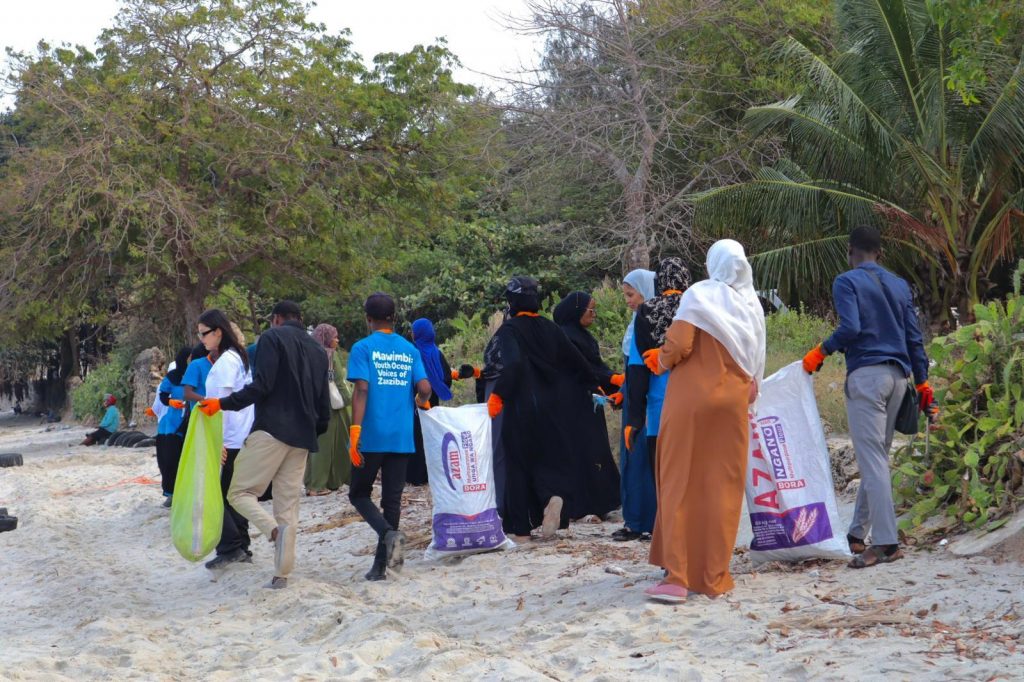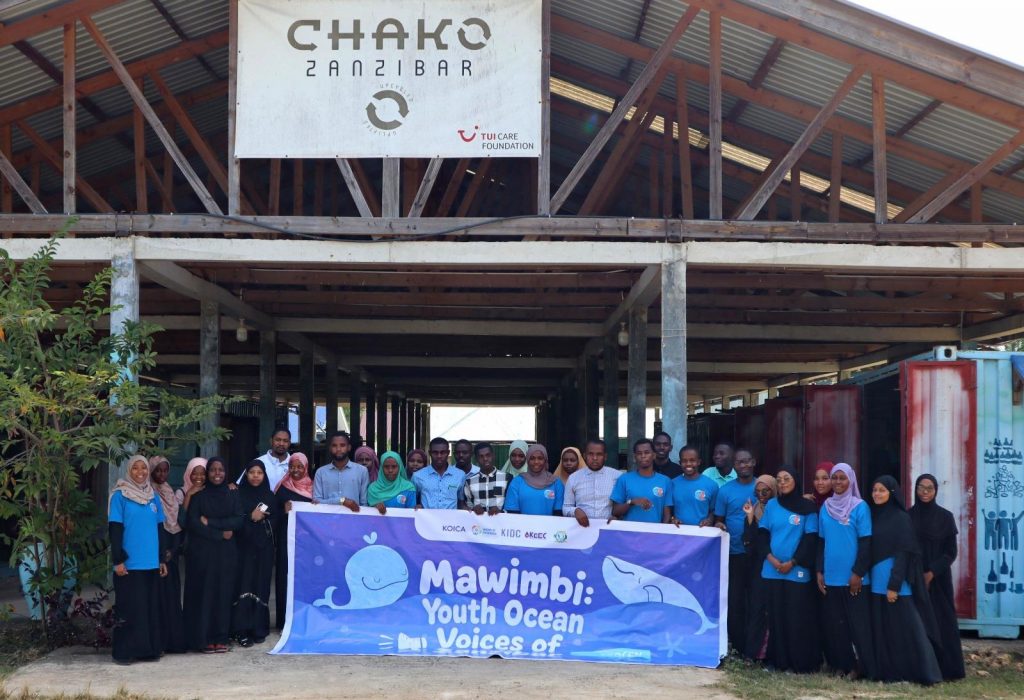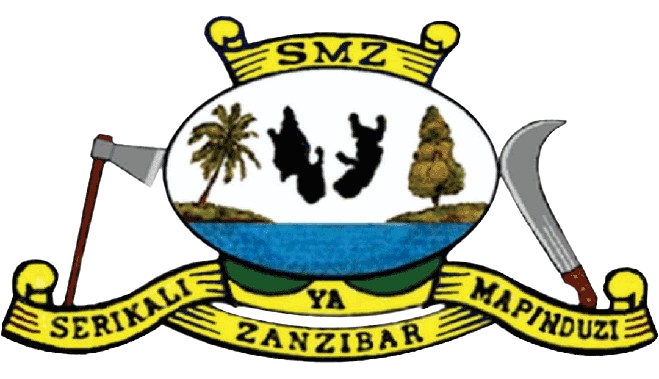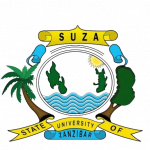On Monday , August 18th at 8:30 am, a wave of community spirit swept across Kizingo Beach as Mawimbi, joined hands with KOICA volunteers from South Korea and SUZA Second year Students to launch its first-ever plastic cleanup activity by collecting and sorting plastic and non-plastic waste with gloves and reusable bags. The initiative is part of a growing movement in Zanzibar to combat marine pollution and protect fragile coastal ecosystems.
Plastic pollution is one of the fastest-growing environmental threats worldwide, and Zanzibar is no exception. Tanzania national guidance for plastic pollution hotspotting report: 29 thousands of tons of plastic leaked into ocean, lake and rivers in 2018; proposed solutions to close the tap(IUCN, 2021). According to the World Bank’s PROBLUE program, the environmental cost of plastic pollution in Tanzania and Zanzibar reached an estimated 28 million USD in 2019 with nearly half of that loss (around 13.7 million USD) tied to damage to the tourism industry in Zanzibar, the lifeblood of the islands’ economy (World Bank, 2023).
Kizingo was chosen as a starting point due to its high levels of plastic waste from households, fish market, and nearby commercial activities. “This is not just a cleanup it’s a call to rethink how we manage plastic at the community level,” said Mr Amini. Volunteers and team collected discarded plastic bottles, bags, shoes, shipping net and gear and food packaging, tools in hand, working together to restore the shoreline.
The activity began by measuring and mark the survey area (kizingo) by KOREA volunteer, then instruction given by Mr.Amini of TROCEN about how activity can be conducted, and said it will include three round of collecting plastic wastes. The volunteer gave the team reusable bags for collecting and putting plastic wastes by using gloves and stainless steel tong for each team. After collecting the wastes overall photo of the survey area following by placed collected waste in collection sacks for transport. After that Mawimbi Team and volunteers conducted Marine litter Analysis in TROCEN. Starting with identifying the wastes and sorted them into different types including bottles, shoes, beverage cover, fishing net, foam and others. After that, the team counted the waste following by measuring them. The findings show that the plastic bottles dominated more than other wastes (456g).

Plastic waste and other debris scattered along the shoreline highlight the growing threat of marine pollution at Kizingo Beach, Zanzibar.

Volunteers from Mawimbi Youth Ocean Voices of Zanzibar, together with SUZA Students and TROCEN staff participate in a beach clean-up to combat plastic pollution and protect marine environment.
Preliminary observations highlighted the dominance of single-use plastics such as water bottles, sachets, and shopping bags. Beyond the waste itself, Mawimbi emphasized that such pollution directly threatens marine life through ingestion and entanglement, while also diminishing the aesthetic value of beaches that sustain Zanzibar’s tourism.
Organizers stressed that cleanups are only a first step. “What matters most is changing behavior, reducing plastic at the source, improving waste management systems, and supporting recycling efforts,” said one of the team. As part of this, Mawimbi has begun collaborating with a local recycling NGO to channel collected plastics into sustainable processing.
For Mawimbi, the Kizingo Beach clean-up was just the beginning. More activities are planned, including visits to recycling centers (e.g CHAKO), to build a culture of sustainability in Zanzibar.
For supporting that, Mawimbi team, SUZA Second Year students and KOICA volunteers together with TROCEN staff visited CHAKO in Kijichi on 26 August , Zanzibar. Manager Helena introduced the work of CHAKO, which focuses on recycling, upcycling, and uplifting waste especially hard plastics and glass. The organization transforms waste into useful products such as tabletops, glassware, egg holders, and keyholders. Sustainability is central to their operations, as they rely on solar energy and rainwater harvesting. Each year, CHAKO collects approximately 138,600 bottles from hotels and restaurants. Miss Helena noted that around 80% of waste generated by the hospitality sector comes from bottles, yet only about 20% is properly disposed of.


Mawimbi team and Suza Students at CHAKO In Kijichi carefully process glass bottles, giving Waste a second life through recycling and upcycling.
CHAKO staff demonstrate the use of recycling. equipment to ransform discarded materials into new, useful products.

SUZA Students, TROCEN staff and Mawimbi Team at CHAKO-ZANZIBAR
The activity also connects to global momentum. Recently, the Intergovernmental Negotiating Committee on Plastic Pollution (INC-5.2) met to advance a legally binding treaty to end plastic pollution. Tanzania, along with other coastal nations, is under growing pressure to align with international frameworks while addressing domestic challenge. From this Tanzania implemented a nationwide ban on single-use plastic bags on 1 June 2019. Also target ban in protected areas(beaches and national park ).
Experts suggest a multi-pronged approach: raising awareness, improving waste collection infrastructure, and supporting alternatives to single-use plastics. “We need to move from cleanup campaigns to systemic change,” Dr. Marry commented .
As the waves recede, the message is clear: every piece of plastic removed is not only about a cleaner beach today but also about protecting the marine environment for generations to come.
Download Article |
